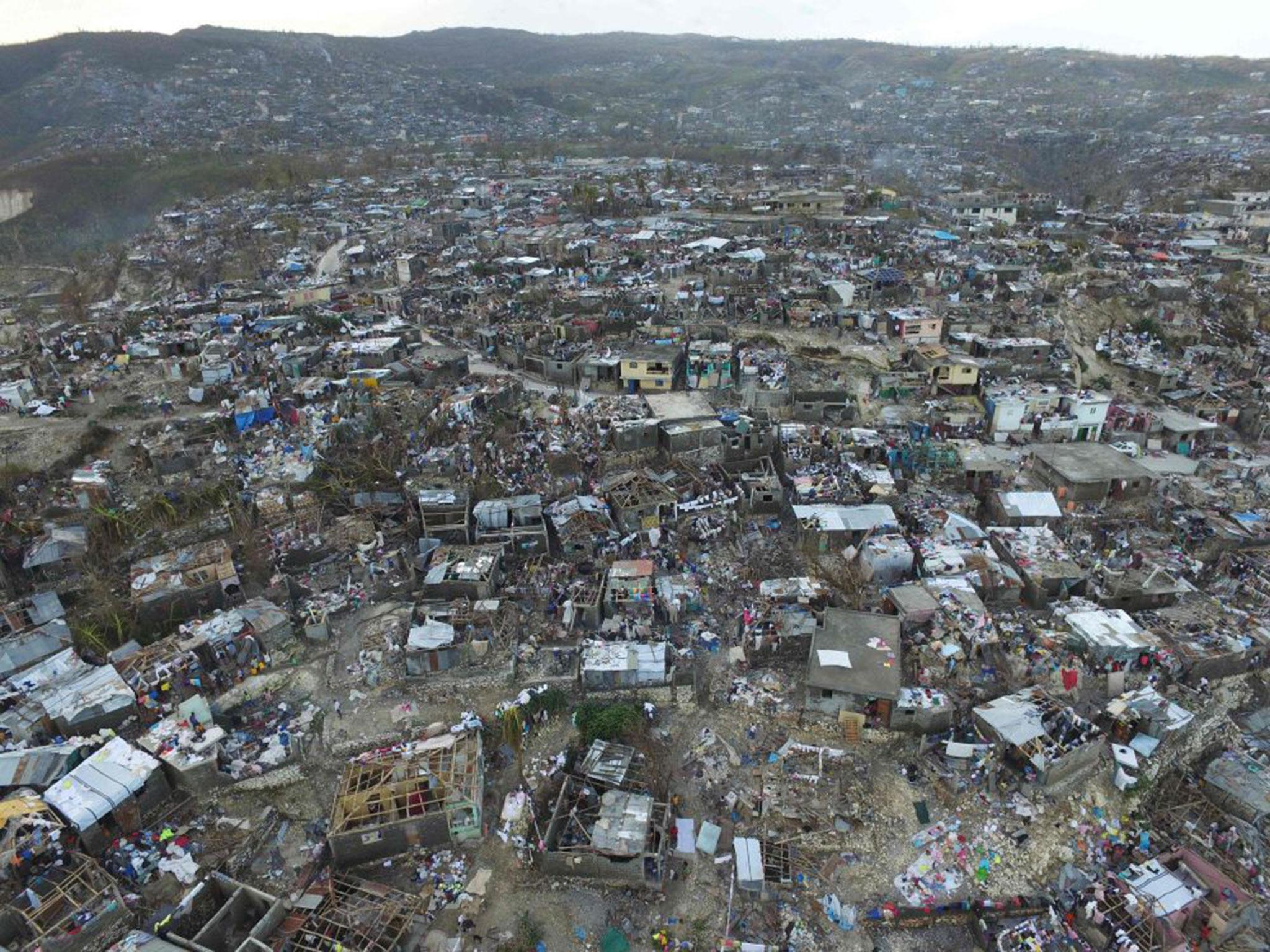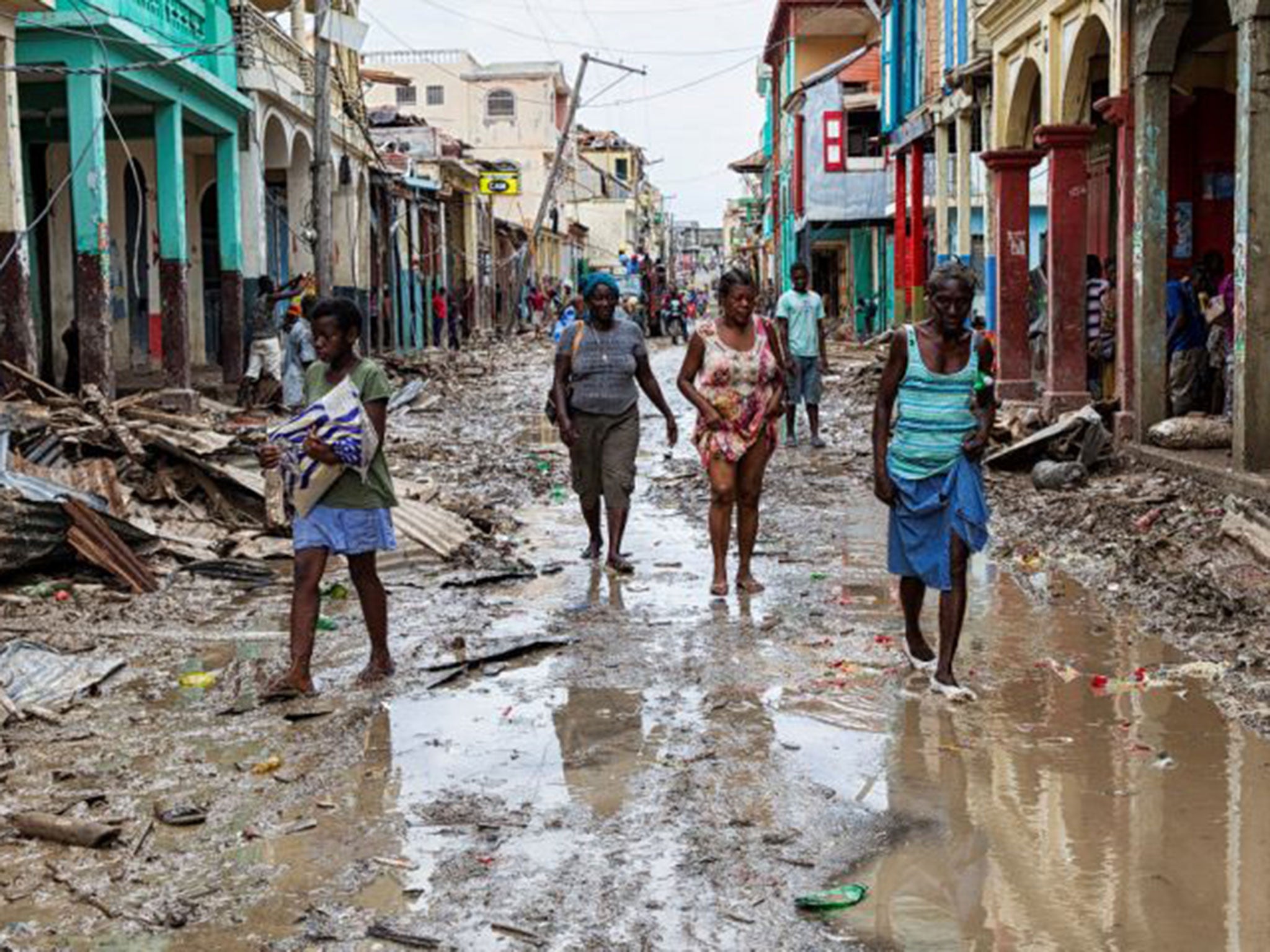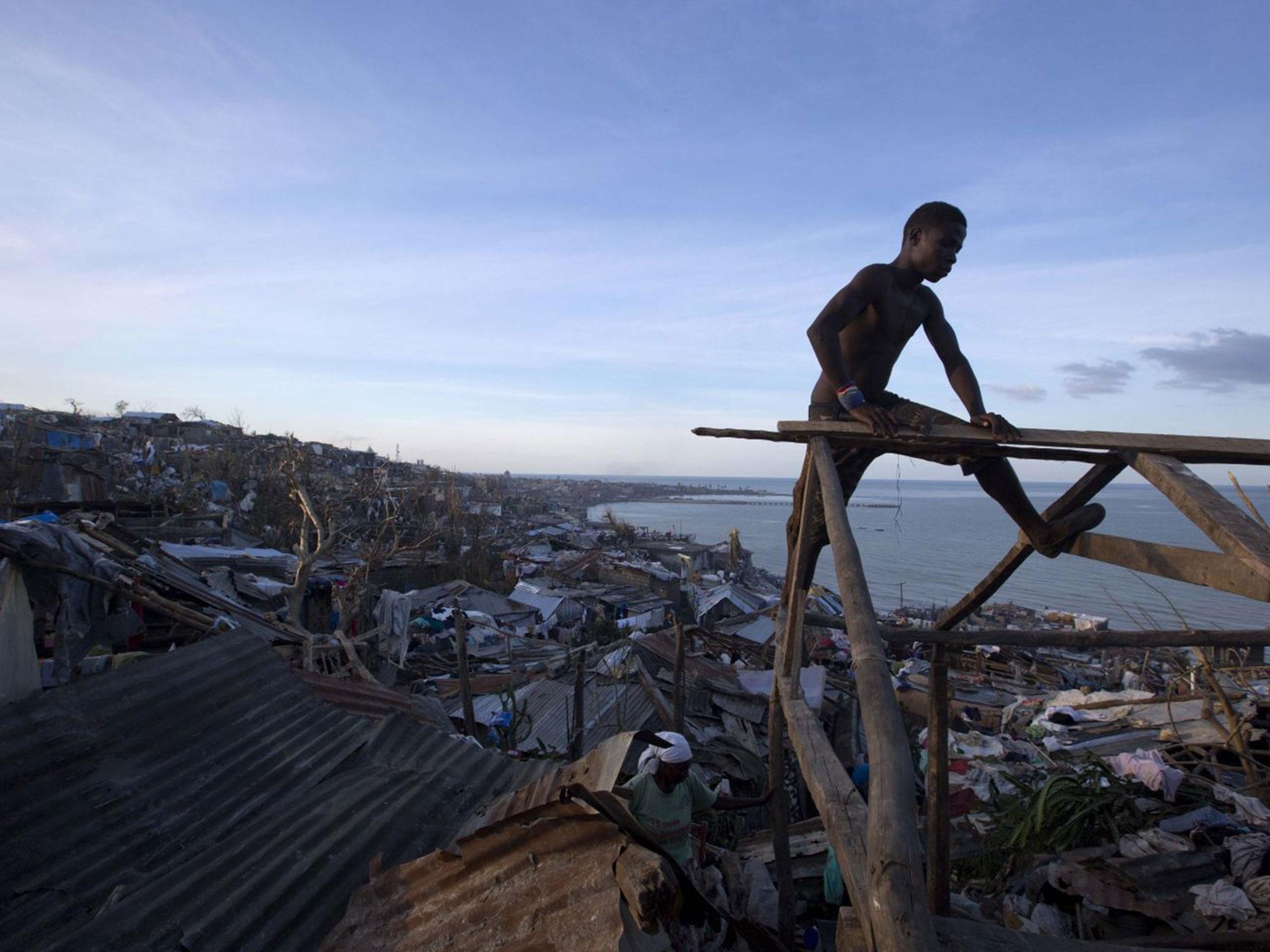Hurricane Matthew: Haiti death toll nears 900 while US braces for impact
Relief organisations say the situation in Haiti is 'critical'

Nearly 900 people have died in Haiti after Hurricane Matthew swept through the Western hemisphere’s poorest nation, destroying buildings and causing major flooding.
In a “major blow” to the country’s reconstruction efforts following the 2010 earthquake, some 350,000 people have been affected by the storm, many losing their homes and possessions.
Relief efforts have been hampered by significant storm damage to the country’s already-poor infrastructure.
Meanwhile, the hurricane is heading for southern states of the US, with evacuations ordered in Georgia and the Carolinas. Matthew has already skimmed the coast of Florida, leaving four people dead and causing flooding.
Hurricane Matthew was a category four storm when it blew into Haiti at 145 mph, taking at least 877 lives, according to a Reuters count, and causing major damage to houses, infrastructure and farmland.
In the western tip of the country - where Matthew caused the most damage - the town of Jeremie was almost totally destroyed. And in Chantal, another community in the west, eighty six people died, with another twenty more people missing.
Resident Jean-Pierre Jean-Donald told of how his wife was killed: "A tree fell on the house and flattened it. The entire house fell on us. I couldn't get out. People came to lift the rubble, and then we saw my wife who had died in the same spot."
The true extent of the damage is only just being revealed as remote areas have been cut off from the rest of the country and some can only be reached by boat or aeroplane. Many people suffering injuries such as broken bones have not received treatment.

Furthermore, the situation has been exacerbated by outbreaks of cholera, which is thought to have been caused by sewage becoming mixed up with floodwater. Children are particularly vulnerable to water borne diseases, and there are an estimated 500,000 youngsters in the worst affected areas.
“We expect that homes, schools and cholera treatment facilities have been destroyed and that water systems, roads and bridges have been severely damaged,” said UN Emergency Relief Coordinator, Stephen O'Brien.
“This is a major blow to Haiti’s reconstruction effort and the fight against cholera, so that’s why immediate emergency funds now will kick start vital life-saving assistance for Haitians caught up in this crisis.”
Other relief organisations have described the situation as “critical” and predicted it would remain so for more than a year. Hunger is expected to be a significant problem in the forthcoming weeks and months.

The UK is contributing £5 million towards the relief effort. “The absolute priority right now is to reach those who are injured and provide them with water, sanitation, shelter and protection,” said International development Secretary Priti Patel.
A US naval boat is also helping manage the emergency. The USS Mesa Verde is equipped with helicopters, bulldozers, fresh water supplies and medical facilities.
The ship leaves behind a country still dealing with Hurricane Matthew, which has now been downgraded to a category one storm. It remains powerful and is expected to move up to South and North Carolina over Saturday.
Despite fears that Florida and Georgia would be hard hit, the states have so far avoided the heavy damage they were bracing for as Matthew skimmed their coastlines, with just four deaths in Florida due to carbon monoxide poisoning and falling trees. Around 1.2 million people suffered power outages.
However, the authorities have urged that the danger is not yet over. “People should not be looking at the damages they’re seeing and saying this storm is not that bad,” said Craig Fugate, director of the Federal Emergency Management Agency, to NBC.
“The real danger still is storm surge, particularly in northern Florida and southern Georgia. These are very vulnerable areas. They’ve never seen this kind of damage potential since the late 1800s.”
Matthew was making itself felt in South Carolina Saturday morning. Hurricane-force winds were moving onshore at Hilton Head and Pritchards Island, South Carolina, the National Hurricane Center reported. At least one wind gust of 61 mph (98 kph) was recorded at Beaufort, South Carolina.
More than 150,000 electric customers in South Carolina — most in Beaufort and the Charleston area — were without power Saturday morning.
There has already been heavy flooding in towns such as Jacksonville, where authorities instructed people to “hunker down” at home.
Major cities like Miami saw heavy winds and rain but escaped relatively unscathed.
In Georgia, the eastern counties are under evacuation orders and 2,000 National Guard troops have been placed on standby.
Storm surges as high as eight feet are possible in South Carolina, where residents of coastal areas have been warned to move to higher ground because of the possible “life-threatening inundation”.
St. Augustine in Florida - which is the oldest permanently occupied European settlement in the US and includes a 17th-century Spanish fortress and many historic homes turned into bed-and-breakfasts - was awash in rain and gray seawater that authorities said could top 8 feet.
The historic town of Charleston has already suffered significant flooding caused by storm surges.
Local government urged some people to move to higher ground because of the risk of flash flooding.
A state of emergency is in force across all four states.
Join our commenting forum
Join thought-provoking conversations, follow other Independent readers and see their replies
Comments